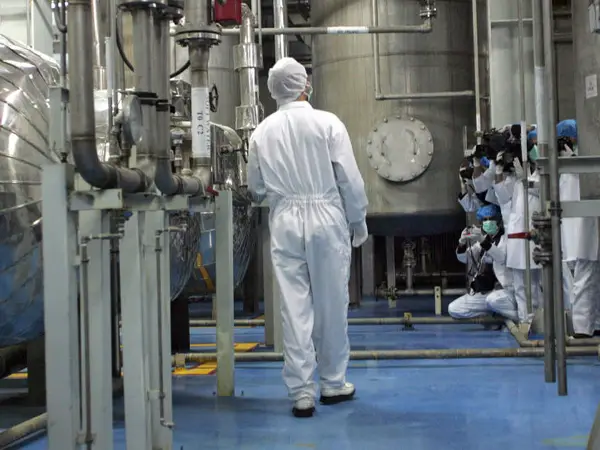Iranian pundits and politicians are concerned about the impact of the pause in negotiations to revive the 2015 nuclear deal on the country's economy.
In a long debate on the chatroom platform Club House earlier this week, several figures said that Iran loses at least $150 million per day because of delay and indecision in the talks for more than a year. Nonetheless, they warned that Iran is facing a threat far bigger than the delay in getting results from the talks - a government plagued by indecision.
Conservative politician Mohammad Mohajeri said this threat is far bigger than any unfavorable outcome in the JCPOA talks. Even if Iran decides not to go back to its obligations under the JCPOA, it needs plans to deal with pressing problems. "Under circumstances marked by indecision, no domestic or foreign investor will be ready to invest in Iran," he said.
Subsequently, he noted, medical doctors, engineers and entrepreneurs leave the country in droves, posing a serious problem for the future. A survey earlier this year published by Iran International, found that three out of ten Iranians want to leave the county because of economic hardship, while others highlight lack of freedoms and despair.
The survey, by Keyou Analytics, found that over 33 percent of 1,300 respondents would emigrate, permanently or temporarily, if able to.
Meanwhile, another Iran International report quoted officials and lawmakers as warning that Iran may be forced to hire foreign doctors as Iranian physicians are emigrating to other countries in large numbers. According to an official at the Iranian Medical Council, wrong government policies is causing disillusionment among young medical practitioners leading to a wave of emigration.
Hojjatollah Samadi, an economic expert and a former banking official said on Club House that lack of planning by the Raisi administration has caused big losses for the country. Iran currently sells 1.5 million barrels of oil less per day because of the delay in reaching an agreement with the United States.
Samadi added that Iran is also losing around 7 to 8 billion dollars a month in revenue as it cannot sell items such as copper, iron ore, and petrochemicals. "We are losing out even more as Iran cannot import technology to boost its gross domestic product," he said.
Meanwhile, Morteza Afghah, an academic at the Shahid Chamran University in Ahvaz, said the impact of sanctions on the people of Iran has redoubled while the government appears to be confused about what to do while it knows that the livelihood of Iranians has depended on oil revenues in the past 40 years. "The impact of indecision on economic issues is undeniable. Indecision has done the worse harm to Iran's economy, the number of poor people has risen, and the situation is fueling tensions while the elite cadres are leaving the country," he said.
Afghah added that "the decision to make up for the budget deficit by increasing taxes will impose hardships on the people, while the government is unable to use the taxes to offer better services to the people."
Mehdi Pazouki, an economist at the Allameh Tabatabai University, said that the losses incurred because of the delay in reaching an agreement with the United States should be calculated not on a daily basis, but minute by minute.
He added: During the past two months while Iran has been making small amounts of profits, Iraq has sold 22 billion dollars and Saudi Arabia has sold 35 billion dollars' worth of oil thanks to benefitting from the US and European modern technology.
